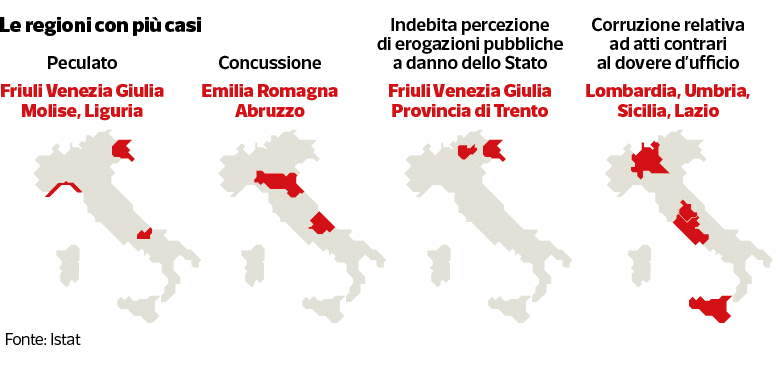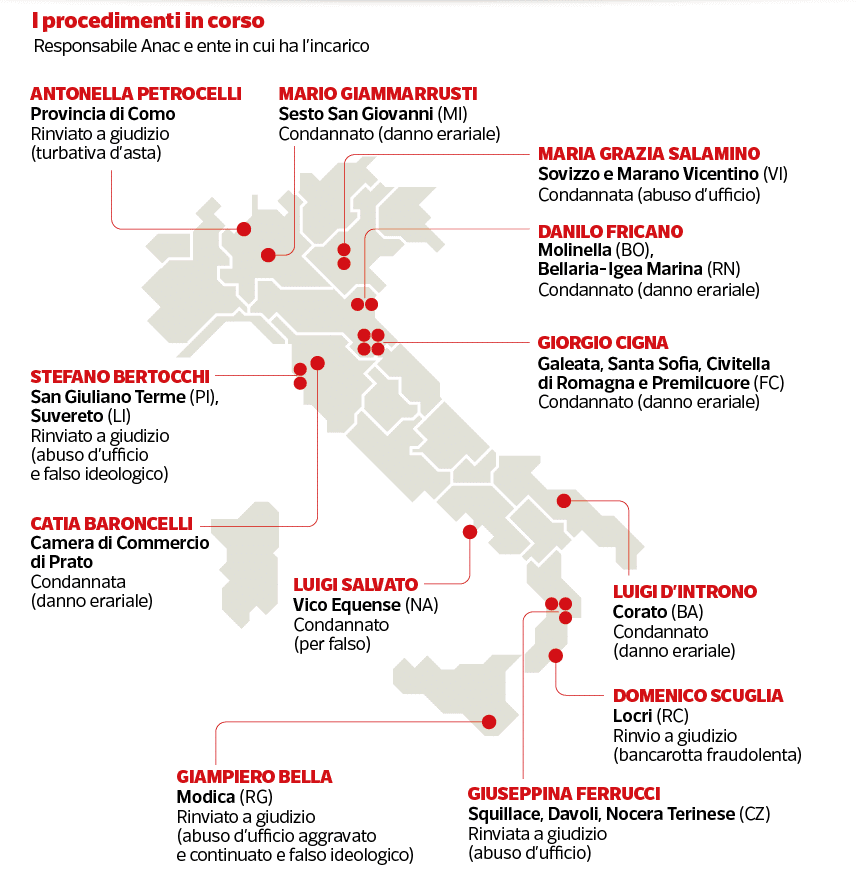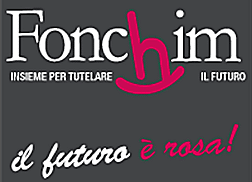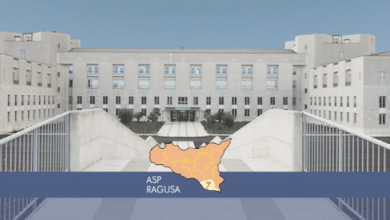
From the CORRIERE DELLA SERA of 14 October 2018 – by Milena Gabanelli
An interesting article by Milena Gabanelli in the Corriere della Sera reveals some aspects of the Anti-Corruption Managers.
The article tells us that in Italy there is an average of over 1,500 cases of corruption every year, 818 definitive sentences in 2016 alone for embezzlement, undue receipt of public funds to the detriment of the State, corruption in judicial or official documents, extortion. Yet 3 out of 4 entities have never reported any case of corruption.
 In Italian local authorities, the responsibles of the prevention of corruption, with exceptions, are the general secretaries: about 7,000 in all, appointed by the mayor, or by the President of the Province. Managers, therefore, of political investiture, and who depend on politics, and it is perhaps for this reason that the Anac, with a circular recommends to "avoid designating, as responsible for the prevention of corruption, a manager against whom legal proceedings are pending", or who has not given "demonstration of integrity over time". The need was felt to clarify it, but not to verify it.
In Italian local authorities, the responsibles of the prevention of corruption, with exceptions, are the general secretaries: about 7,000 in all, appointed by the mayor, or by the President of the Province. Managers, therefore, of political investiture, and who depend on politics, and it is perhaps for this reason that the Anac, with a circular recommends to "avoid designating, as responsible for the prevention of corruption, a manager against whom legal proceedings are pending", or who has not given "demonstration of integrity over time". The need was felt to clarify it, but not to verify it.
Among these there is a long list of suspects or convicted of bid rigging, treasury damage, abuse of office, undue repayments, fraudulent bankruptcy, forgery.
Gabanelli concludes that “it would be helpful to know in how many cases these secretaries-in-charges have opposed even a single illegality. At the moment, we have not found any data, indeed we have even struggled to find the Managers, since not even on purpose, the register that should guarantee maximum transparency on the holders of this position, available online on the same Anac platform, has been updated for some time ".
Among the tasks of the ANAC is that of preventing corruption in the public administration, in accordance with this task they have elaborated various Codes whose application should precisely prevent corruption. Among these Codes there is one that concerns Health and in which we also find rules for the ISF (ANAC. Guidelines Code of Conduct SSN) and textually prescribes a Code that provides for:
the reference to the discipline to regulate access within the healthcare structure of scientific representatives and of subjects who, on behalf of the manufacturing/distributing companies, propose the sale or illustrate the use of drugs and/or medical devices.
The same should configure transparency measures aimed at tracing contacts between professionals and subjects appointed by the aforementioned companies such as, by way of example, the establishment of a register certifying the access of informants or other subjects mentioned above within the healthcare institution, the interlocutor and the motivation and the prohibition to receive the subjects in question outside a predetermined time slot.
What could prevent such a rule remains a mystery. Even the least intellectually gifted could understand that  it is not the rules that eliminate the corruptor, on the contrary, as Davigo said, it is the corruptor who diligently follows the rules, even the stupidest ones. With the excuse of these rules, other characters, even less intellectually gifted and completely unaware of the task of the ISF, have elaborated further rules so cumbersome and even more stupid as to make the work of the ISF impossible. It is clear that these rules alienate honest people.
it is not the rules that eliminate the corruptor, on the contrary, as Davigo said, it is the corruptor who diligently follows the rules, even the stupidest ones. With the excuse of these rules, other characters, even less intellectually gifted and completely unaware of the task of the ISF, have elaborated further rules so cumbersome and even more stupid as to make the work of the ISF impossible. It is clear that these rules alienate honest people.
Fortunately, sensible people have simply ignored these rules, and everything is as it was before. A really nice result!
Albert Einstein said that "two things are infinite: the universe and human stupidity, but he wasn't so sure about the universe“. The problem is that stupidity can do damage.
And they pay them well, and a lot!
Editorial – 10/15/2018
Note: We at FEDAIISF, when we met some "advisers" of the ANAC, warned them, telling them that with those wicked anti-corruption guidelines they blocked the ISF and paved the way for a whole series of unidentified figures whose existence they didn't even know. They didn't even hesitate to understand what a sector they were, arrogantly and with extreme ignorance, trying to regulate is like. We reiterate a concept already expressed in June 2017 in Bologna. And given that this is the ANAC, we ask ourselves why continue to maintain a structure as useless as it is expensive.





